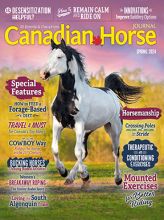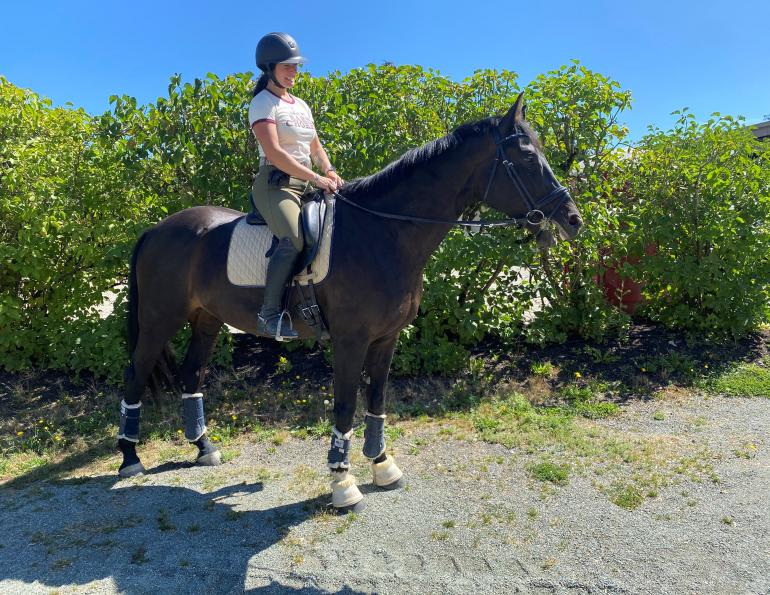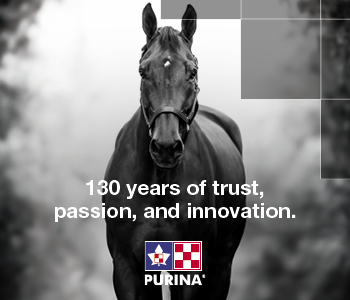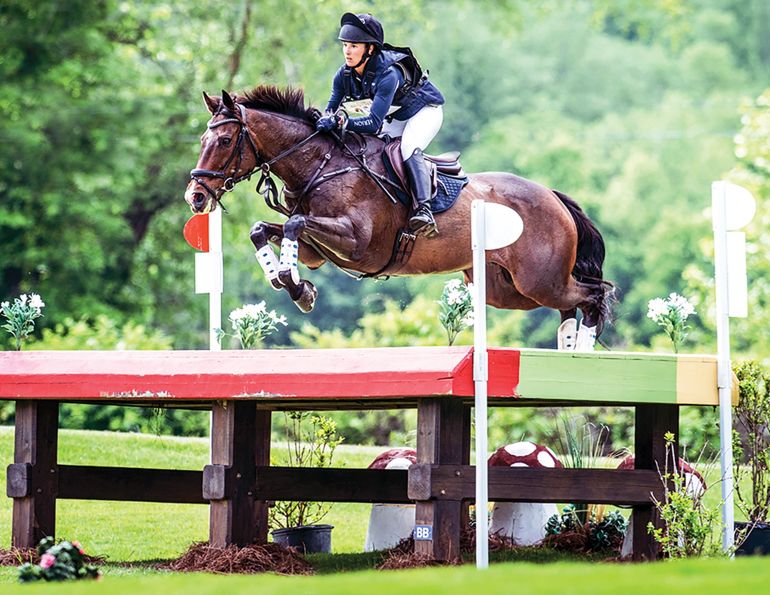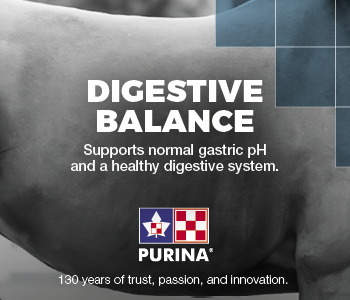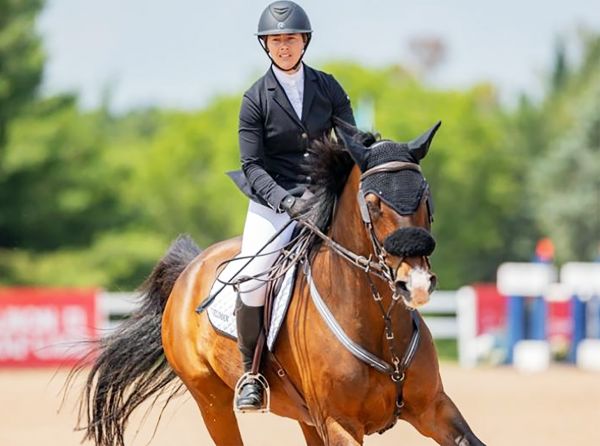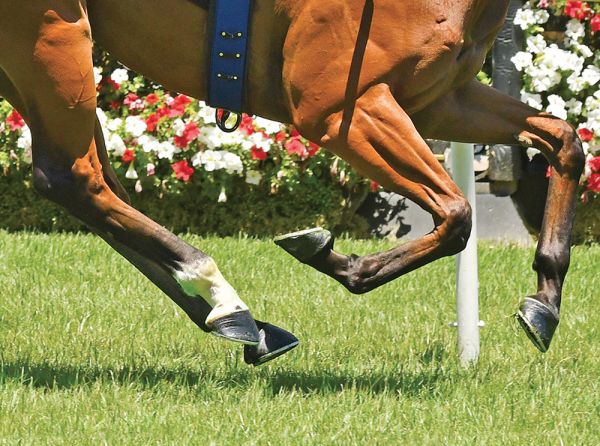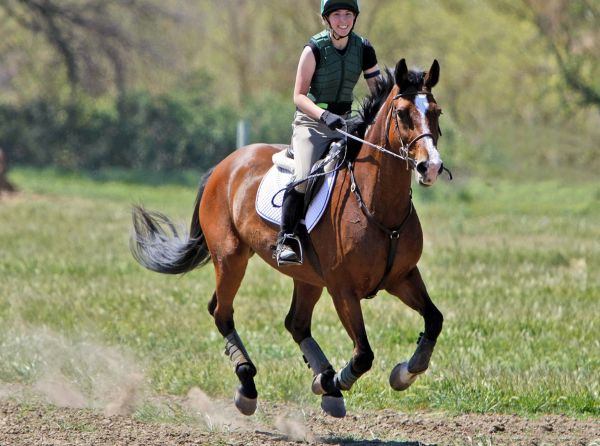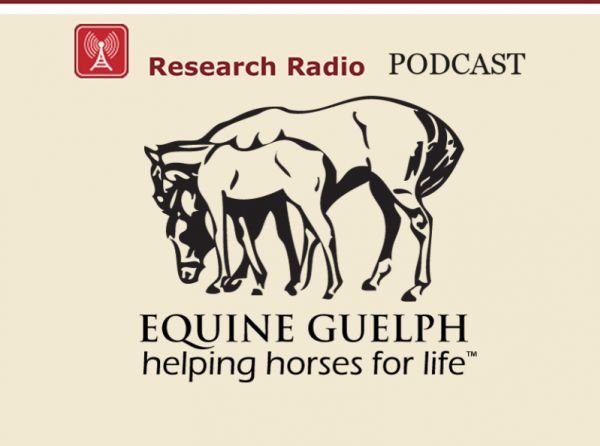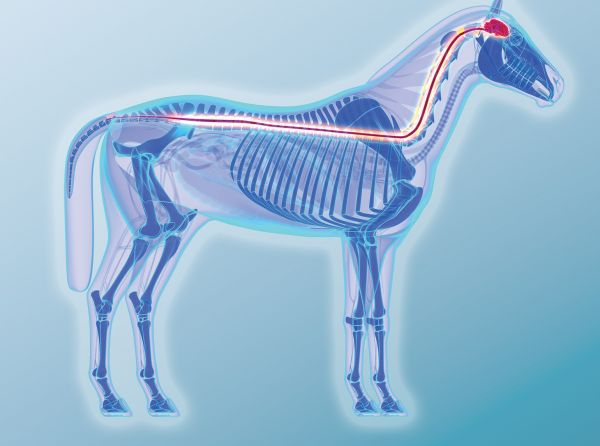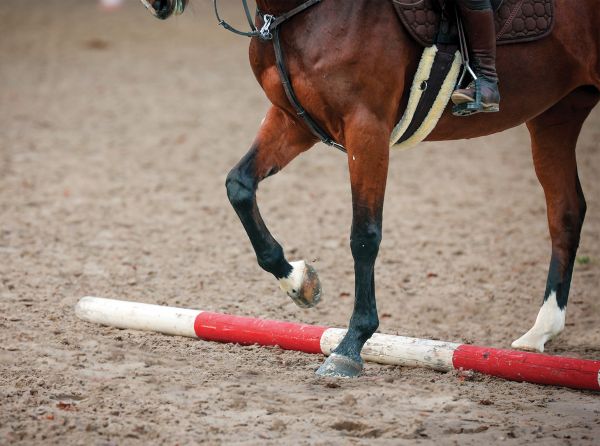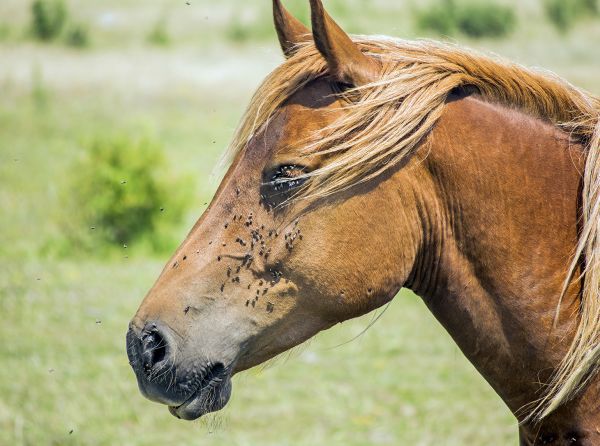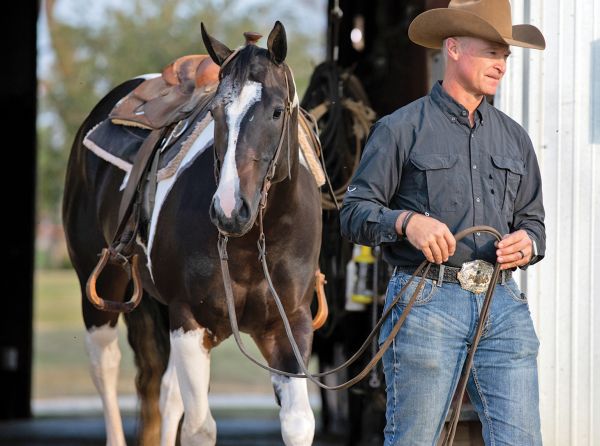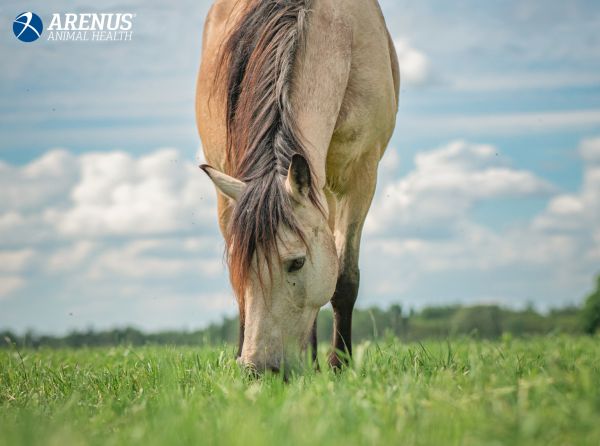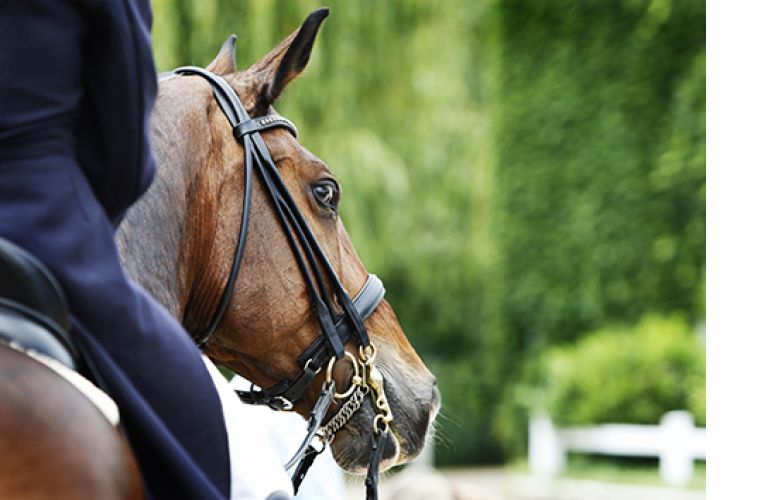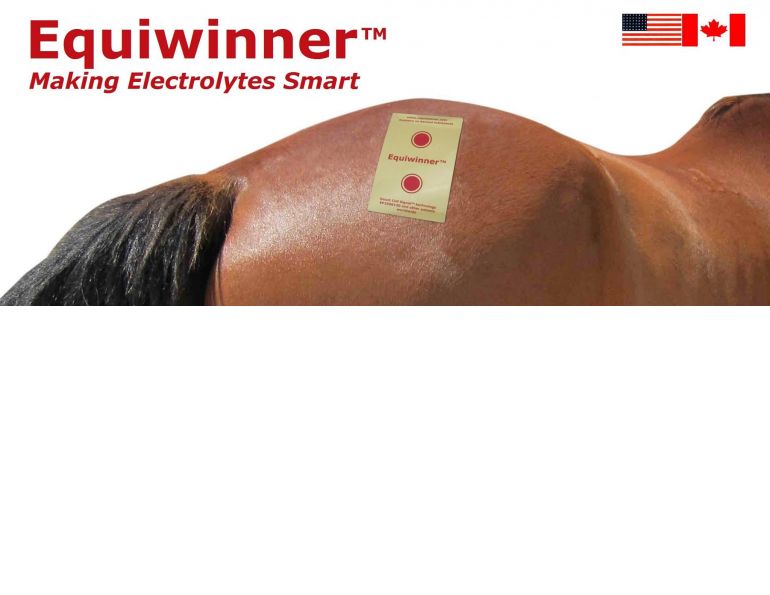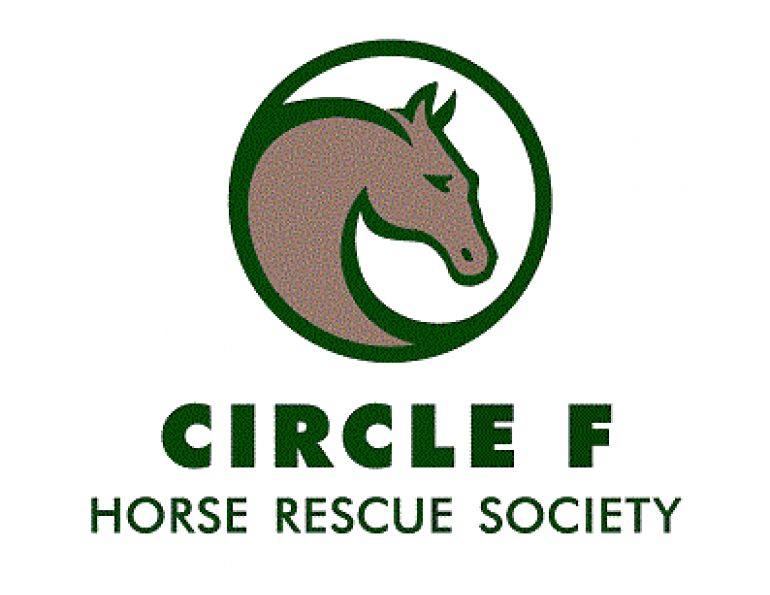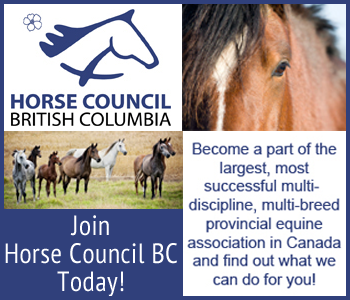By Melanie Huggett
Have you dreamed of a career in the horse industry? There are a variety of opportunities available for those looking to make a living with horses.
Following are eight of the many equine careers you might wish to consider.
#1 Equine Nutritionist
Equine nutritionists know the nutritional needs of horses and how to meet them better than anyone else. Primarily employed by feed companies, equine nutritionists perform a variety of duties related to feed creation, marketing, and customer service.
“I am responsible for the equine product line (at Masterfeeds), new product development, feed formulation, working with marketing to market these products, feed consultations on farms, sales and sales support, technical training, seminars, and more,” says Jackie VandenBrink, a nutritionist at Masterfeeds. “I have a very interesting and varied job.”

Photo: Pam MacKenzie Photography
In order to be a good equine nutritionist, “you need to have a very thorough understanding of horses, horse health, and nutrition, both practical and technical,” says VandenBrink. “You have to be quite analytical, have strong math and science skills, but then be able to apply your knowledge into practical products and solutions for customers.”
Nutritionists typically earn a Bachelor of Science in Agriculture and may choose to earn a Master’s degree in nutrition. Nutritionists continue their training and learning throughout their careers.
“A nutritionist (needs) a never-ending curiosity about how to make the life of a horse better through good nutrition,” says Ken Wilkinson, a nutritionist at Otter Co-op. “Being a good listener with an open mind is critical. I do my homework on any problem and I rely on networking with experts all over the world. One can never know it all. I am always on the hunt for new ideas and approaches to many old problems.”
It’s important for nutritionists to keep up-to-date on the latest research, which, along with changing customer needs, allows nutritionists to reformulate and create new feeds.
Nutritionists may also get the chance to work with other livestock species. “I do dairy and equine,” says Shelagh Niblock of ProForm Feeds. “I like being involved in two species because there is so much overlap and each one gives me insight into the other one. (For example,) one of the areas where equine and dairy overlap is forage, specifically grass hay. I realized that what we were going for with such gusto in the dairy (hay) may not be ideal for our horses.”
“You have to have a real keen interest in the species, but you must also like people and enjoy interacting and talking with people,” continues Niblock. “A big part of my job is fielding calls from my customers about specific issues they have with horses.”
“Good social skills are very important,” says VandenBrink. “You’re always working with people, your colleagues, and your customers.”
#2 Equestrian Building Consultant
An equestrian building consultant helps horse owners turn their dreams for their land into a reality. Consultants can be self-employed or work for larger building companies.
According to Wolfgang Winkler, owner of 4W’s Consulting Ltd. in Shawnigan Lake, BC, the most important quality in a building consultant is to know horses. “If you do not know horses, you are not going to do a good job,” says Winkler.

Photo: Pam MacKenzie Photography
Good consultants should have experience in a variety of facilities and disciplines, so they can give owners advice on how to optimize their facilities, while keeping the health and long-term soundness of the horses in mind. For example, consultants should know where to position the feed or tack room in the barn to maximize efficiency, where to situate the barn to deal with local wind and weather conditions and maximize ventilation, how to house stallions and broodmares, and what type of footing to use in an arena depending on the disciplines and events it will be used for.
Consultants must also have a background in the construction industry. While a degree in architecture or engineering may help, an apprenticeship with a construction company who builds equestrian facilities would be the “best bet” says Winkler.
Equestrian building consultants are involved in the entire planning and building process of part or all of an equine facility. They could be hired to build a simple shed or paddock, or a top-of-the-line breeding or sport horse facility including landscaping and detailed finishes. “The first step I take is to get together (with the client) and clarify their purpose,” says Winkler. “Is it just housing for horses? If so, how do you want to keep your horse? Do you want a more robust outside, year-round paddock or pasture, or do you want to bring your horse in, keep him at a barn, and turn him out at will?” Deciding what you want to do will determine what you need, whether it’s sports use for training, a round pen, indoor arena, outdoor arena, or racetrack.
Consultants must also work with architects, builders, subcontractors, parts manufacturers, and others to see their projects through to completion. For this reason, consultants should have good networking and communication skills.
#3 Equine Surgeon
When a horse needs surgery, an equine surgeon will perform the operation. Working out of veterinary hospitals, clinics, colleges, or universities, equine surgeons are specialized veterinarians who have completed the schooling, training, and testing to become board certified Diplomates with the American College of Veterinary Surgeons (ACVS).

Photo: Pam MacKenzie Photography
It is a long process to become an ACVS Diplomate, requiring hard work and dedication. It takes a minimum of two years of college to gain the prerequisite courses for application to one of the five veterinary colleges in Canada, though many choose to get a three or four year bachelor’s degree in sciences. Once accepted to veterinary school, the curriculum is four years long. After that comes a year of internship or practice before the new veterinarian is eligible to apply for residency training in either large animal or equine surgery. “Most programs are designated large animal, though the majority of the experience is in equine surgery. The surgical residency is three years long and includes two years of in depth surgical training and 12 months of non-surgical rotations including anaesthesiology, radiology, pathology, internal medicine, and a research experience that must result in the publication of a manuscript in peer reviewed literature,” says Dr. David Wilson, DVM, Dipl. ACVS, Professor of Large Animal Surgery, Large Animal Clinical Sciences, Western College of Veterinary Medicine, Saskatoon, Saskatchewan. “Upon completion of the residency, the trainee must successfully sit a comprehensive specialty board examination before being recognized as a specialist in large animal or equine surgery.”
Once certified as an ACVS Diplomate, equine surgeons perform “anything under the sky, from keyhole joint surgery (arthroscopy), to keyhole abdominal surgery (laparoscopy), to fracture repair, throat surgery like tie backs for roaring, laser surgery in the throat, colic surgery, wound surgery, eye surgery, etc.,” says Dr. Judith Koenig, DVM, DVSc, Dipl. ACVS & ECVS, Associate Professor, Large Animal Surgery, Ontario Veterinary College, University of Guelph, Guelph, Ontario.
“Abdominal surgery and arthroscopic orthopaedic surgery are the most common,” says Dr. Wilson.
After becoming an ACVS Diplomate, equine surgeons may choose to specialize in a particular area of interest, “usually soft tissue and orthopaedic,” says Dr. Koenig. “That is usually based on interest, aptitude, and experience, not formal training.” In addition to the required schooling and experience, equine surgeons also require “an inquiring mind with a dedication to lifelong learning,” says Dr. Wilson, as well as “a comprehensive knowledge of anatomy and especially pathophysiology and a capacity to consider the whole horse and not just the presenting surgical problem.”
Surgeons must have good communication skills as they interact with all who are involved with a given horse, such as the farrier, the general practitioner, and the owner. Dr. Wilson adds that surgeons should have “a self–effacing attitude that fosters an approach that puts each patient first, even if that involves admitting that you may need to search out others with more experience with selected patients.”
#4 Horse Hauler
A professional horse hauler is much more than a man with a truck and trailer. While a hauler’s primary job is to move horses from point A to B, haulers are also responsible for the wellbeing of the horses in their care and maintaining good communication with those horse’s owners.

Photo: Pam MacKenzie Photography
Experience is a must. “Try to get on with an established carrier. Get some experience that way,” advised Kevan Garecki of H4 Services. “There have been so many start-ups of people with a trailer who decide they are going to haul horses for a living — it does not turn out too well!”
Haulers must have excellent horsemanship skills, as they will work with a variety of horses, some of which may be less than happy about the prospect of entering a trailer. “We get all kinds,” said Garecki. “From the teddy bears who walk on all by themselves to basically wild horses. I’ve had them try to go out the window. Having a higher than normal understanding of equine first aid is a must. Horses are going to get hurt, so you need to be comfortable dealing with bumps and bruises and also know how to prevent them in the first place.” Haulers must know how to properly handle a stallion, and how to haul mares and foals and other horses with special needs.
Haulers must also have an understanding of truck and trailer requirements, licensing, insurance, and regulations. “You don’t have to be an expert but you at least need to be able to find an auto agent who deals with commercial licensing,” says Garecki.
Haulers must have the right equipment. “The most common mistake is buying a really nice trailer but one that won’t stand up to commercial use,” says Garecki. “Your truck has to match your trailer. Knowing what equipment works together and what to get is important.”
Once a hauler has the right truck and trailer for the job, he or she must have the driving skills to use it safely. Many driving schools offer professional driver improvement courses (PDIC) and large trucking companies may include training for their drivers.
Knowledge of basic mechanics is also useful. Trucks and trailers require maintenance to stay in good repair, and haulers should be able to recognize problems. “If you’re familiar with your vehicle from a mechanical standpoint, you’re less likely to have a breakdown because you are more likely to recognize a problem before it becomes an emergency.” A hauler should be mechanically inclined enough to do simple repairs such as changing a fan belt or a tire.
Trip planning is also important. “Know your routes well,” says Garecki. “One might be the shortest route, but it’s not a good road to take horses on. The other route might be 100 kilometres out of the way, but it’s a better road, so we’ll take that one because it’s easier on the horses.” Developing a network of suitable places to stay overnight comes with time.
#5 Custom Saddler
Saddlers keep horses and riders performing happily in properly fitted tack, which are also beautiful works of craftsmanship and art.

Photo: Christina Handley Photography
Prospective saddlers, whether English or Western, train by taking an apprenticeship with an experienced, qualified saddler. “There are saddlemakers who are happy to teach their craft for a fee. I highly recommend this form of training,” says Andy Knight, who makes custom Western saddles out of his Knight’s Saddlery in Lower Nicola, BC.
Those interested in creating English tack can become certified Master Saddlers through European programs such as the one offered by the Society of Master Saddlers (SMS) in the UK. Programs to become certified in the UK and Germany take a minimum of seven years to complete and include apprenticeships, work experience, and examinations before students can call themselves Master Saddlers.
“A Master Saddler is someone who is mainly functioning in the actual production, repair, and assembly of saddles and other equine accessories,” says Sabine Schleese of Schleese Saddlery in Holland Landing, Ontario. This is different from a saddle fitter, who measures and fits saddles according to the biomechanics and anatomy of the horse.
“My day to day work includes saddle fitting and bridle making, including strap goods like halters, dog collars, and belts,” says Rachael Argo, an SMS Master Saddler and qualified saddle fitter who works out of her Callan Saddlery in Aylesford, Nova Scotia. “I also repair and adjust saddles, bridles, and any sort of leather goods people bring to me.”
Saddlers should have “people skills, horsemanship skills, knowledge of horse anatomy, good hand-eye coordination, a great deal of patience, and an innate desire to always improve,” says Knight, along with “the ability to take criticism.”
#6 Auctioneer
The call of the auctioneer is instantly recognizable as he keeps track of bids at auctions everywhere from the local livestock auction to high priced horse sales.

According to the Massachusetts Auctioneers Association website, “the chant, that often-indecipherable string of words, is a crucial but minor aspect of an auctioneer’s job. From the moment they’ve been contracted, an auctioneer fills several roles.” Auctioneers are marketing experts with intimate knowledge of the market, horses, business, and sales, as described on the Perlich Bros Auction Market website:
“We are a family owned auction company, offering a unique bundle of services backed by more than four decades of honesty and integrity in the agricultural market. We are known for our innovative auction methods, attention to detail and our total commitment to our customers. Customer satisfaction is our greatest asset.”
While some auctioneers work their way up by starting as a bid caller or clerk, auctioneers can learn the required skills at any number of private schools throughout Canada and the USA that offer programs of varying length and depth. Additional college or university degrees in business or marketing may also be useful. Also check with your province to see what licensing may be required.
Auctioneers should be confident, competitive individuals with integrity, good customer service and public speaking skills, and the ability to make quick decisions while multitasking.
#7 Thoroughbred Exercise Rider
Exercise riders help train and condition racehorses, working them on the track so they are ready for race day. They are typically hired by trainers to exercise five to twenty horses, five to six days a week.

Exercise riders can work their way up at the racetrack, first working as a groom or hot walker. A number of exercise rider and jockey training programs are also available, and are a good way to learn the skills required as well as make contacts in the industry.
“It’s like learning to drive,” says Mark Fournier, Animal Science Coordinator at Olds College, which offers an exercise rider and jockey training program. “Will you improve with time? Absolutely. But if you have a race car professional teaching you to be a driver, you are going to be better.”
Athletic ability and fitness are important in this physically demanding career, along with good riding and horsemanship skills and a solid work ethic. “There has to be a love of horses. They (prospective exercise riders) have to really want to make that part of their career,” says Fournier. “Secondly they have to enjoy the racetrack lifestyle. They will be up at 5:00 or 5:30 in the morning. They are travelling. They have to be willing to do that and wanting to do that. Thirdly, there has to be a willingness to learn. They may know how to ride well Western, but they are being trained to be a jockey. Even if you can ride, you need to be willing to put some of what you know aside to learn and pick up the right skills.”
#8 Equine Appraiser
Appraisers put a dollar value on a horse or pony, performing a vital service, offering a fair and unbiased opinion of a horse’s market value for the purposes of insurance, sale, collateral, tax audits, court cases, and more. Prospective appraisers should have extensive experience in various aspects of the horse industry, and must keep up-to-date on the current market.

Photo: Pam MacKenzie Photography
“Realistically, to be good at it, you need to have been in the industry for a long time and you really need to have a lot of knowledge about the horse industry in general: the markets and the economy. You really have to know your different breeds and disciplines,” says Tracy Dopko of Daventry Equine Appraisal Services of Darwell, Alberta. Appraisers should know about conformation, temperament, ability, show records, and how they affect the value of a horse.
Equine appraisers can become certified through a short course offered by the American Society of Equine Appraisers (ASEA), which goes into depth about doing appraisals, the economy, court cases, and testifying. After the course, appraisers may call themselves “Senior Appraisers.” To maintain the certification, the course must be taken every five years. “The senior appraiser course is important if you are needed to do court cases,” says Dopko. “The more credentials you have behind you, the more you get hired.”
Main Article Photo: Pam MacKenzie Photography
This article originally appeared in the February 2011 issue of Canadian Horse Journal.


